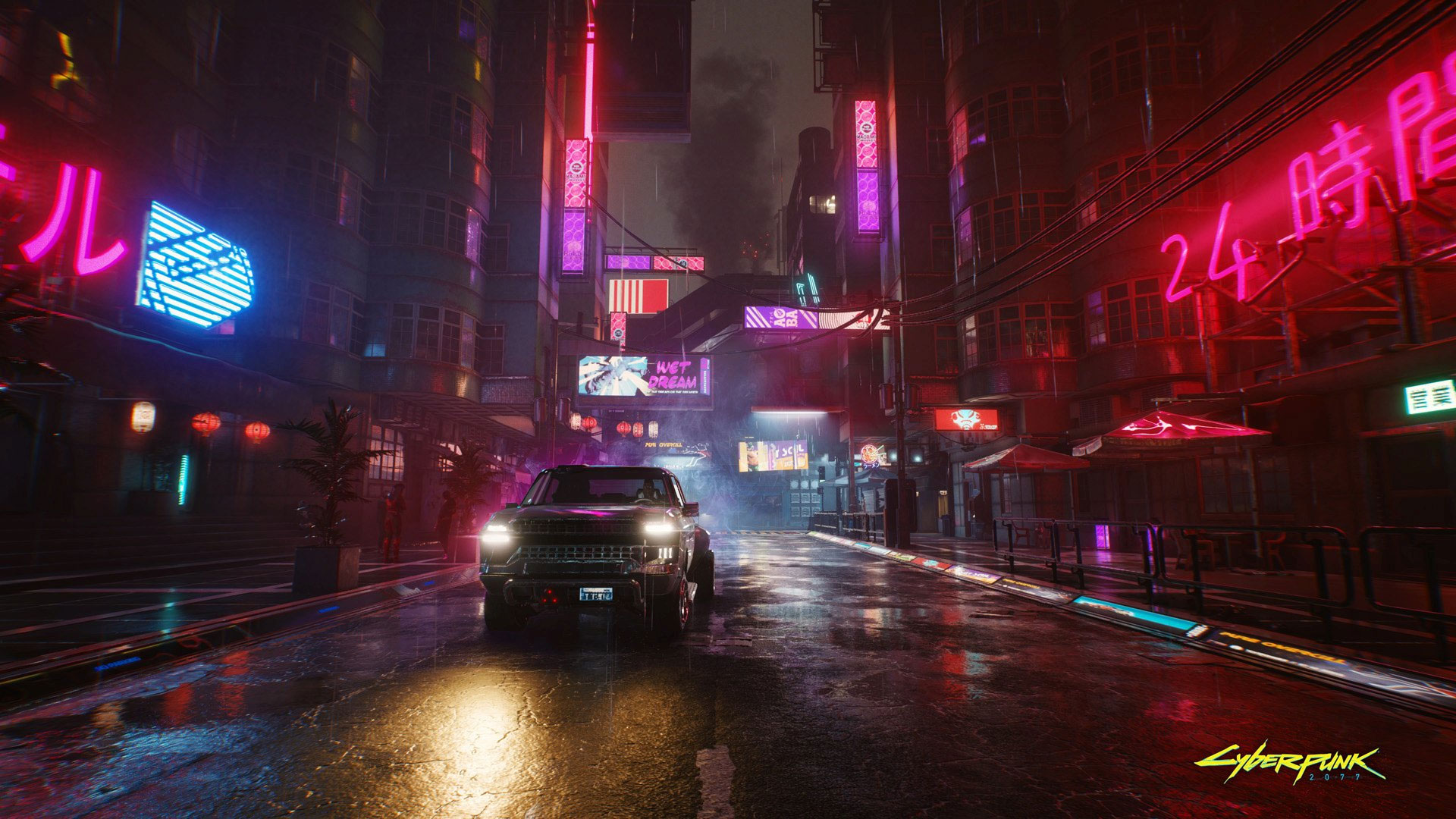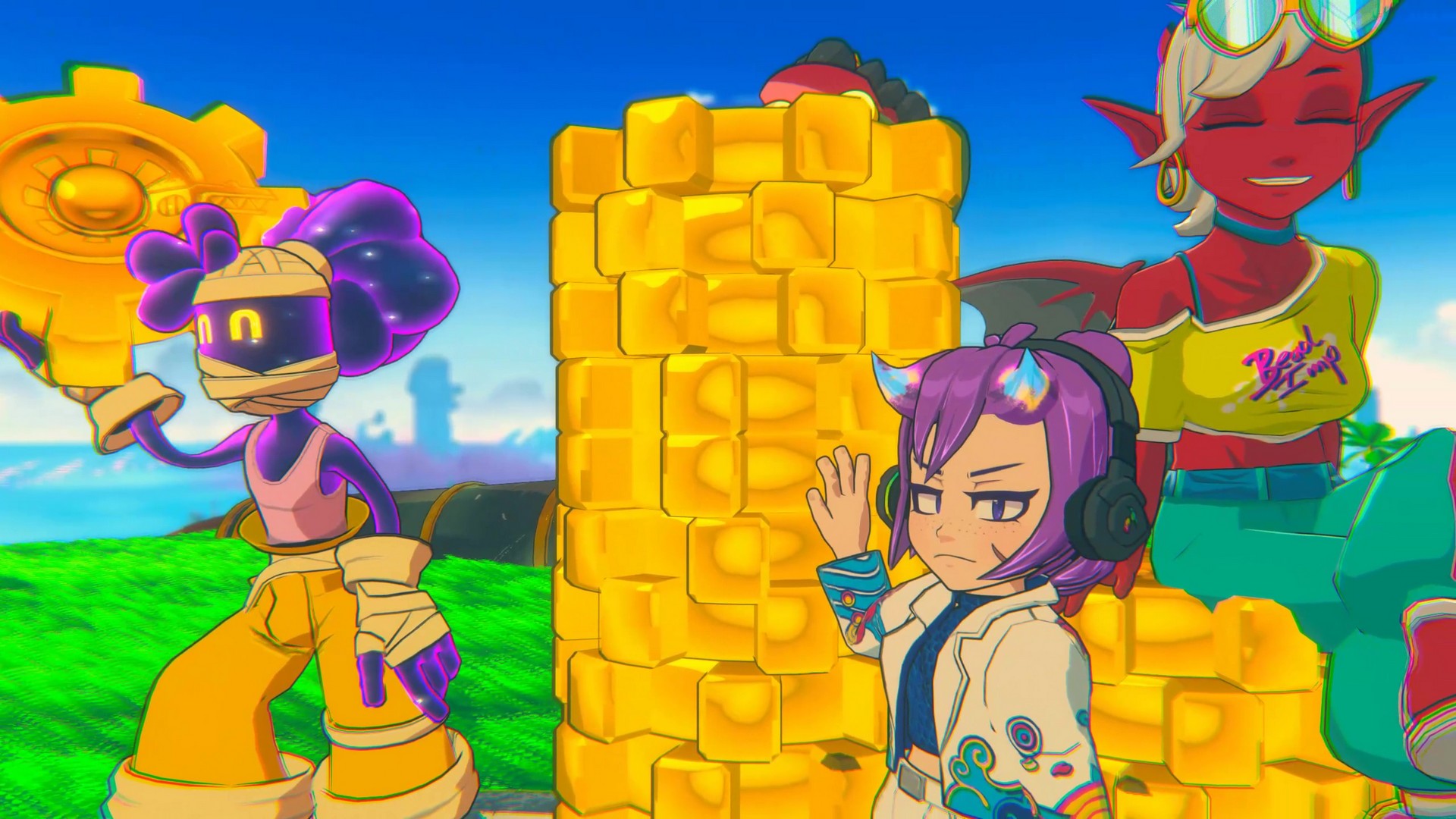GamesRadar+ Verdict
What Cyberpunk 2077 lacks in core campaign length, it makes up for with depth and soul, offering a world of intrigue and violence unlike any other.
Pros
- +
Most immersive game world to date
- +
Absolutely gorgeous
- +
Freedom of choice in story and combat
Cons
- -
Shorter than expected
Why you can trust GamesRadar+
I've spent more time than I'd like to admit just staring at Night City. At its neon-lit streets, dappled with pink and yellow after rain; at the smoke rising through the elevator shaft in V's apartment building; at the shimmer of chrome running through the arms and faces of NPCs; at the lurid metallics and high-gloss clothing that adorn its citizens; or simply at yet another city-wide vista I've discovered after driving to a new hill in the Badlands. Cyberpunk 2077 is beautiful.
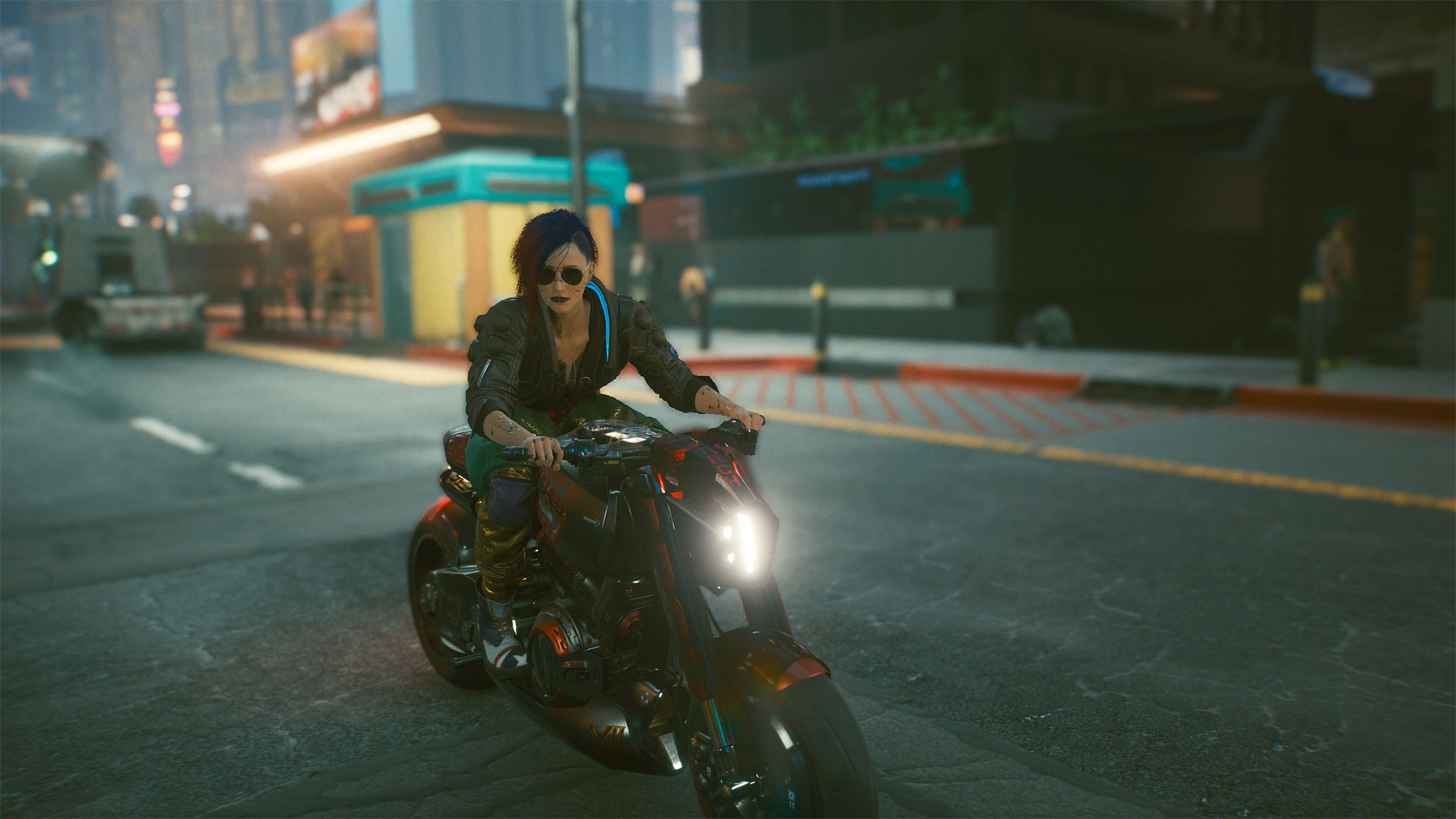
Release date: November 10, 2020
Platform(s): PC, PS4, Xbox One
Developer: CD Projekt Red
Publisher: Bandai Namco
Cyberpunk 2077's world is such an aesthetic joy that it feels disrespectful to fast travel or skip drives in Night City. At times, it feels as if the game has transformed into some living, voyeuristic screensaver, such is its ability to distract with its good looks. It's not just the way the city comes to life at night either, as the appropriately titled Night City does look ridiculous in the dark – all neon shimmer and glowing reflections, the headlights of your car carving out a path through the concrete or the dust of the Badlands. Night City brings out the beauty in every slice of the day. But it's always quick to remind you that life within Night City is brutal, raw, and oh so violent. But that's what you're hoping for right? After all, a great setting will only get you so far.
One-way ticket
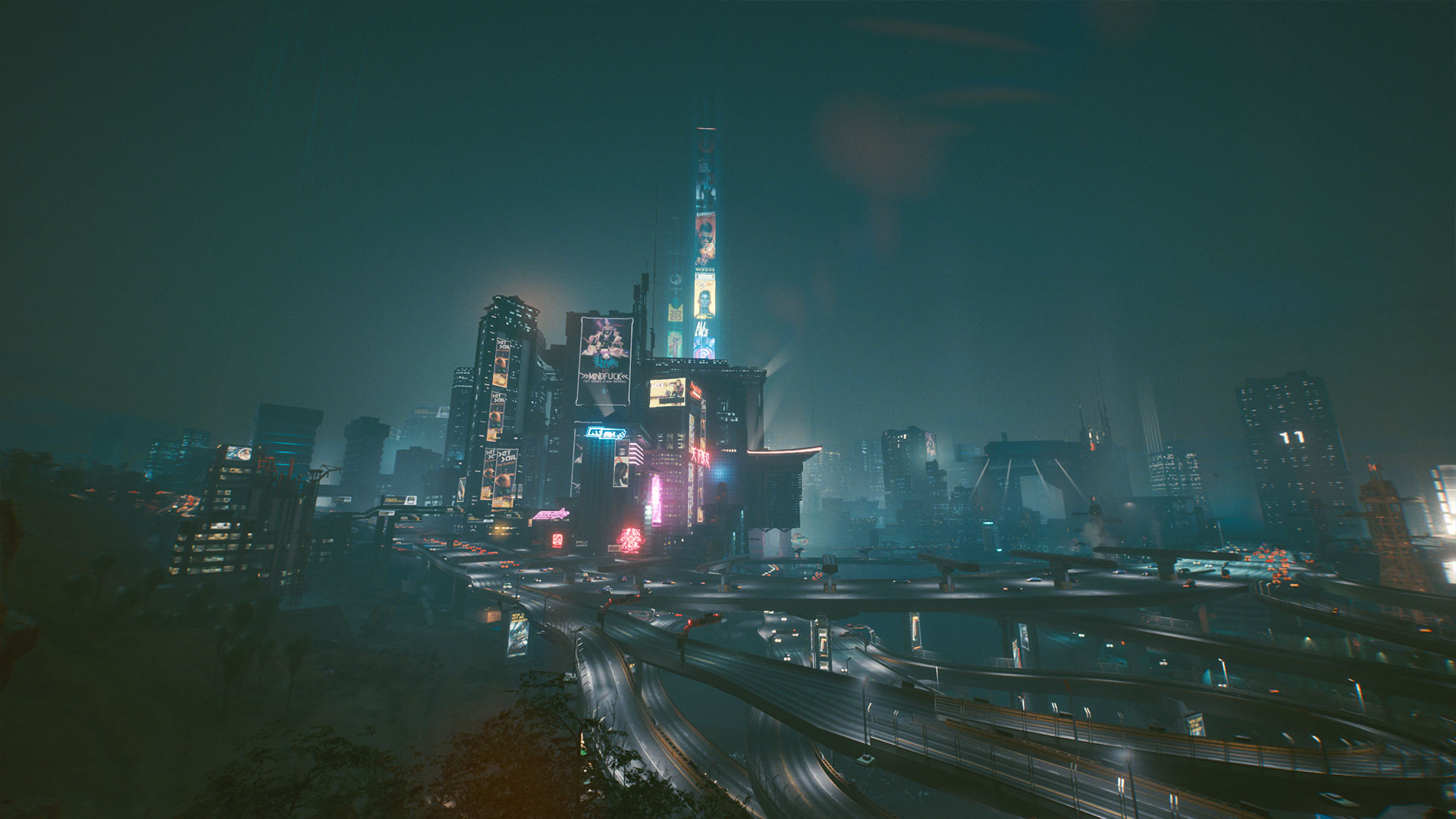
As you'd expect from the team that brought you The Witcher 3: Wild Hunt, Cyberpunk 2077 is a masterpiece of world-building, full of intrigue and distraction that will keep you diving from one quest into another with glee. Quests take various forms, from the Main Jobs to the Side Jobs (which are basically core missions in all but name), down to those that you'll stumble upon like Gigs and Police Scanner Hustles. What all of that results in is a map that's a mess of icons, which can initially feel overwhelming, but actually just means that you're rewarded for exploring NIght City. Turning a corner down a side street could offer up anything from shiny cars and bikes for sale or a ripperdoc clinic to dive into for some cyberware enhancements, to the mysterious gigs that only reveal themselves when you get into their proximity and you get a call from the local fixer involved. Night City only gets richer and more enticing the longer you spend in it.
You'll want to explore everything Cyberpunk 2077 has to offer, because the core campaign is surprisingly short – should you focus solely on the Main Jobs. Ignore Side Jobs, Gigs, and other Night City lures and you could be looking at a completion time of somewhere in the 15 to 20 hours region. But, you'll also be doing the game a huge disservice by powering through V's core task, so while it's possible, I'd also strongly advise against it.
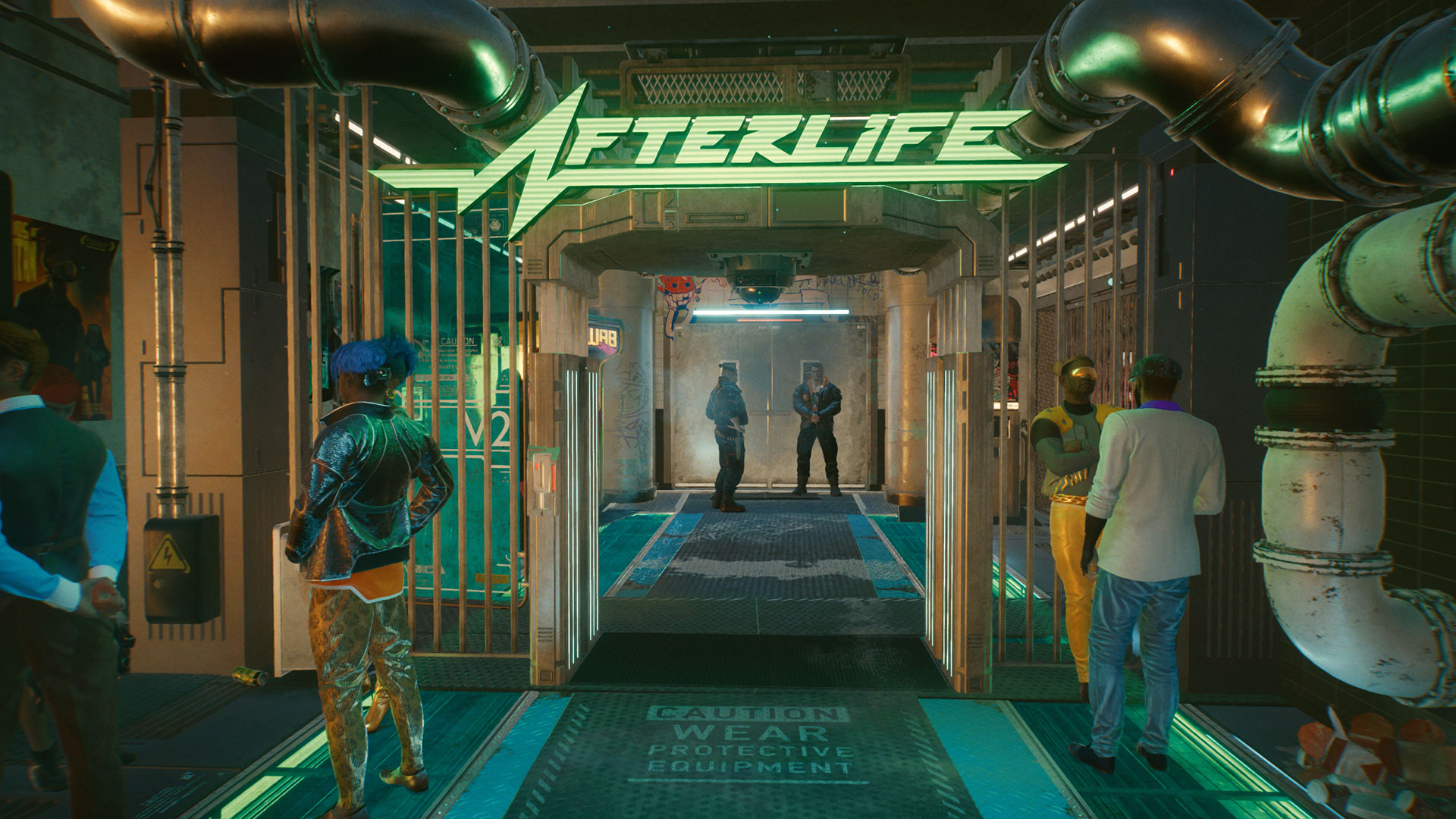
What I will say though is that I was genuinely taken aback at facing a 'point of no return' warning in the core campaign that felt like it arrived just as the story was really hitting its stride. CD Projekt Red has said previously that Cyberpunk 2077 is "slightly shorter" than the Witcher 3 in an attempt to get more people to see the story through to its conclusion, but this warning felt like it came out of nowhere. However, if finishing The Witcher 3 was a feat that not everyone could achieve, completing Cyberpunk 2077 is an experience that – hopefully – a larger majority of players can have. But, more importantly, for what Cyberpunk lacks in campaign length, it more than makes up for with the depth and breadth of the content available in Night City.
It's here that the Side Jobs are incredibly crucial – and quite the misnomer. While it's tempting to dismiss them as mere filler, they are campaign arcs in their own right, exploring narratives with core characters that bring light, colour, and complexity to the main story – not to mention the possibility to influence the ending. While I won't spoil anything for you, it's here that you'll find a different side to Cyberpunk 2077, a more emotional, human side away from the guns, gangs, and gore. You'll become so emotionally invested in these characters that it's easy to become more engrossed in them than V's own plight. There's warmth here, brilliant humour, and an emotional punch that you won't always expect, delivering compelling characters that will no doubt rank as some of the best gaming has to offer. It's the same for the Gigs too, quick-fire mini-quests that act as small distractions from the main story and multiple-hour Side Job arcs. Gigs range from the straightforward to the downright bizarre, and more than once I found myself laughing out loud at the brilliant absurdity of it all.
We built this city...
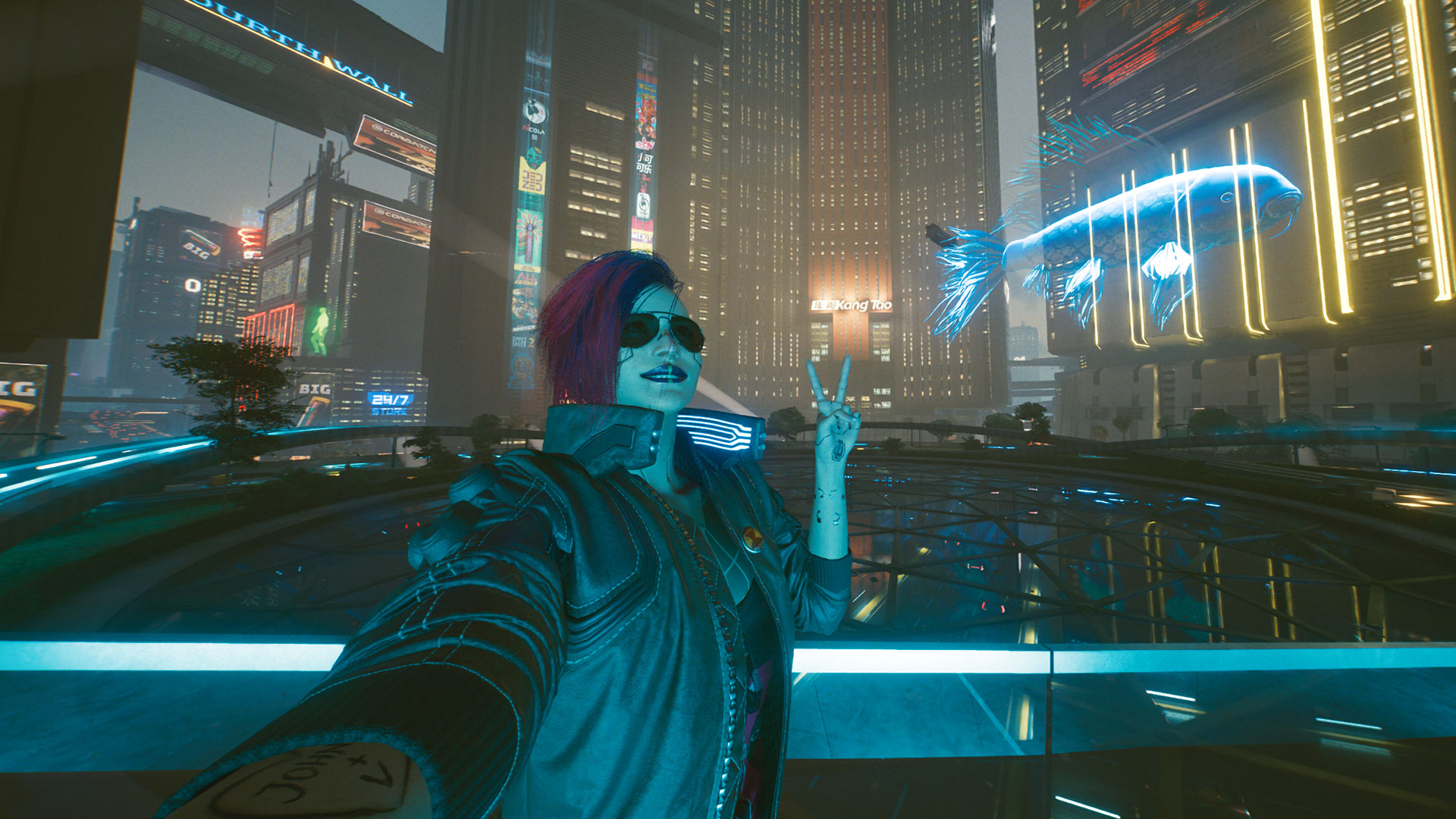
Johnny Silverhand, of course, also adds to the game's appeal. Played by Keanu Reeves, Silverhand is your constant companion, commenting on your escapades and the decisions you'll make at every opportunity. He's a bizarre presence, and not always a welcome one, but the rockerboy never fails to add something to a situation. Love him or hate him by the end, there's no doubt you won't have appreciated the rollercoaster that Silverhand provides as you watch the credits scroll.
Weekly digests, tales from the communities you love, and more
How you feel about him though, and any of the characters that stagger into V's life, will always depend on the choices you've made in Cyberpunk 2077. While that starts with the character customisation and your choice of lifepath, it continues until the very last moments of the game. As I mentioned in my preview, while Cyberpunk 2077 offers up the more traditional dialogue choices, it also comes the closest to mimicking human interaction. No longer do you need to "press X to interact" with someone, just go up to them and start talking. You can choose to pick up on something else that's happening in the room mid-conversation if you want, speak to someone else for a bit, or simply just walk away. The choices you make may not always cause the story to divert dramatically, but you'll never quite know how far-reaching your decisions are until you've made them.
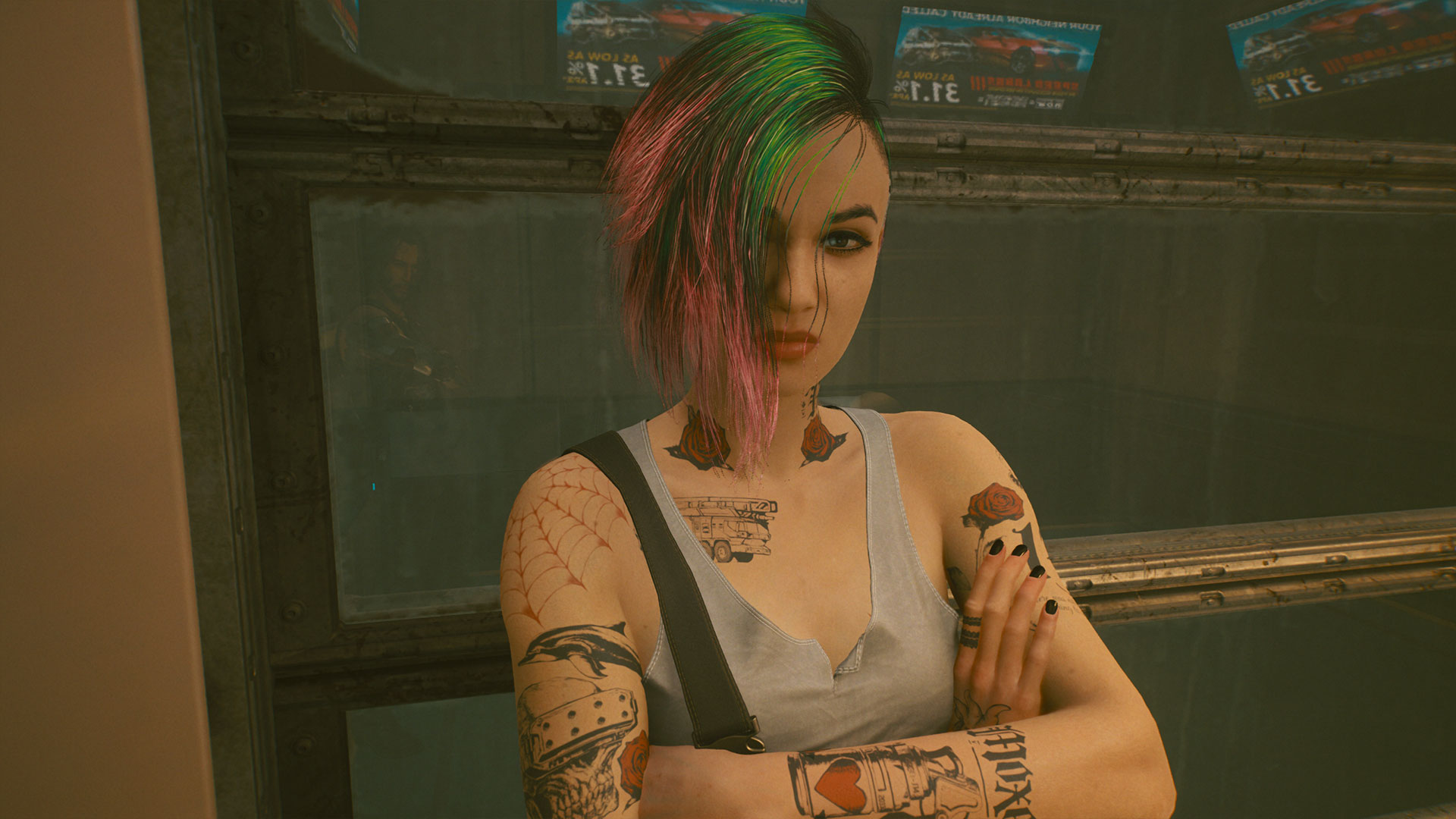
That breadth of choice extends to the combat too. You'll find weaponry aplenty in Night City, from a katana called the Black Unicorn to a sniper rifle that can blow people's heads to bits like a particularly pleasing pimple pop, but what you choose to do with them is up to you. The game features a wealth of upgrade trees for abilities and associated perks that let you really dial into the kind of person you want your V to be. Prefer a stealth option? Put your perk points into improving your netrunner and cyberware abilities so you can set an enemy on fire from a safe distance. Want to become an elite shotgun specialist? There are plenty of perks for that. Initially, the wealth of options within the perks can feel overwhelming, but the more you play, the easier it becomes to tweak and enhance the things you want to be proficient in.
The switch to FPS from the RPG format of The Witcher 3 is a huge change too. But CD Projekt Red has done a great job making the combat always feel rewarding. It's not quite as nuanced as The Witcher 3, but you'll feel the benefits and differences not only between each gun type, but also individual weapons – you'll soon have your favourites, trust me. For me it's the ability to mix cyberware-powered hacking and enhancements (like legs that let you double jump) with gunplay that's the real draw, allowing you to balance stealth and hands-off attacks with the option to quickly switch tactics as needed. You can go full-melee if you want - I'd fully recommend the mantis blades - but that would require a decent amount of prep work and strategy, learning how best to block and manage your stamina to avoid being taken down immediately.
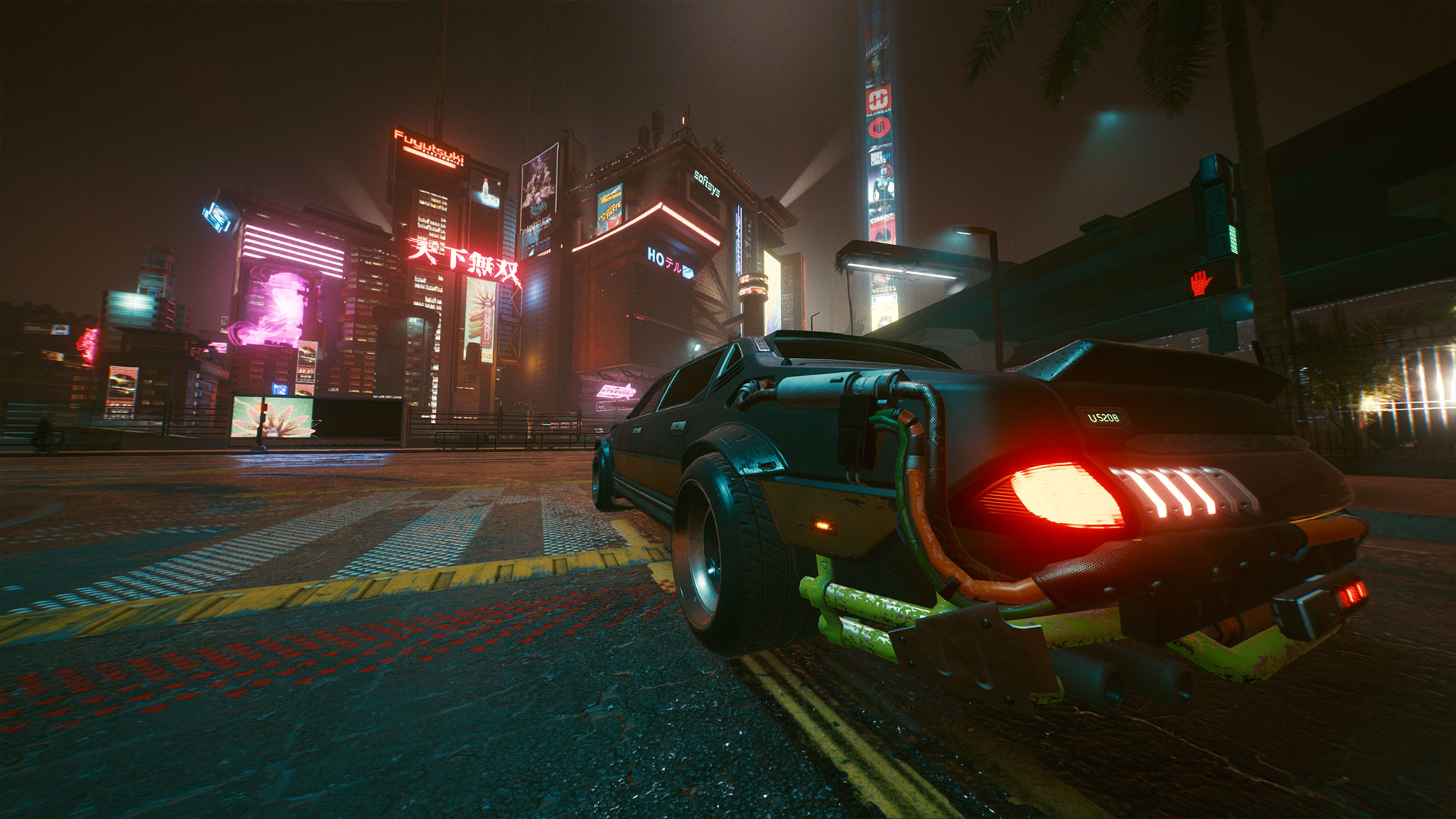
Even after 50+ hours with Cyberpunk 2077, which includes seeing my first ending and completing all the main side quests, I still feel like I have plenty to see in Night City. Gigs still litter the map, fixers still call me for help, and I've not even started my car collection yet. Even after all this time, I can't get enough of Night City, and thankfully very little has gotten in the way of experiencing it. The only bugs I've encountered to date have mostly been visual - like missing vehicles, floating weapons, or random stuck menu bars - and have been easily fixed with a quick save and reload. Plus, all of which have been promised to be patched out with the Day One patch that's yet to drop.
What has been an absolute joy though is experiencing Cyberpunk 2077 at full Ultra Ray-Tracing setting via the Nvidia RTX 3080. Having started the review on an RTX 2070 Super running the game on Ray-Tracing Medium settings, the jump up to the Ultra settings felt like switching on a realism mode that I've not seen before in games. The additional levels of fidelity offered by ray-tracing for the shadows and reflections meant I was constantly peering into mirrors and inspecting the city shining back to me in the bonnet of my Porsche. It's hard to overstate just how good Cyberpunk 2077 looks on PC, and although this won't be the options available to everyone, this is the best graphical experience gaming has to offer right now.
Cyberpunk 2077 is a paragon of open-world gaming, offering the kind of freedom to explore and define your character that provides a new pinnacle for the genre. It takes everything we celebrate about open-world games, and learns from it, implementing best-in-class variations in a world that's so dense and detailed. Add in the human-like level of reactivity and emotional depth that it brings to its narrative, and it all combines for the most spectacular experience. Take a trip to Night City immediately.
Reviewed on PC (specs: RTX 3080 provided by Nvidia, Intel i9-9900k, 32GB RAM). Game code provided by the publisher.

Sam Loveridge is the Brand Director and former Global Editor-in-Chief of GamesRadar. She joined the team in August 2017. Sam came to GamesRadar after working at TrustedReviews, Digital Spy, and Fandom, following the completion of an MA in Journalism. In her time, she's also had appearances on The Guardian, BBC, and more. Her experience has seen her cover console and PC games, along with gaming hardware, for a decade, and for GamesRadar, she's in charge of the site's overall direction, managing the team, and making sure it's the best it can be. Her gaming passions lie with weird simulation games, big open-world RPGs, and beautifully crafted indies. She plays across all platforms, and specializes in titles like Pokemon, Assassin's Creed, The Sims, and more. Basically, she loves all games that aren't sports or fighting titles! In her spare time, Sam likes to live like Stardew Valley by cooking and baking, growing vegetables, and enjoying life in the countryside.
